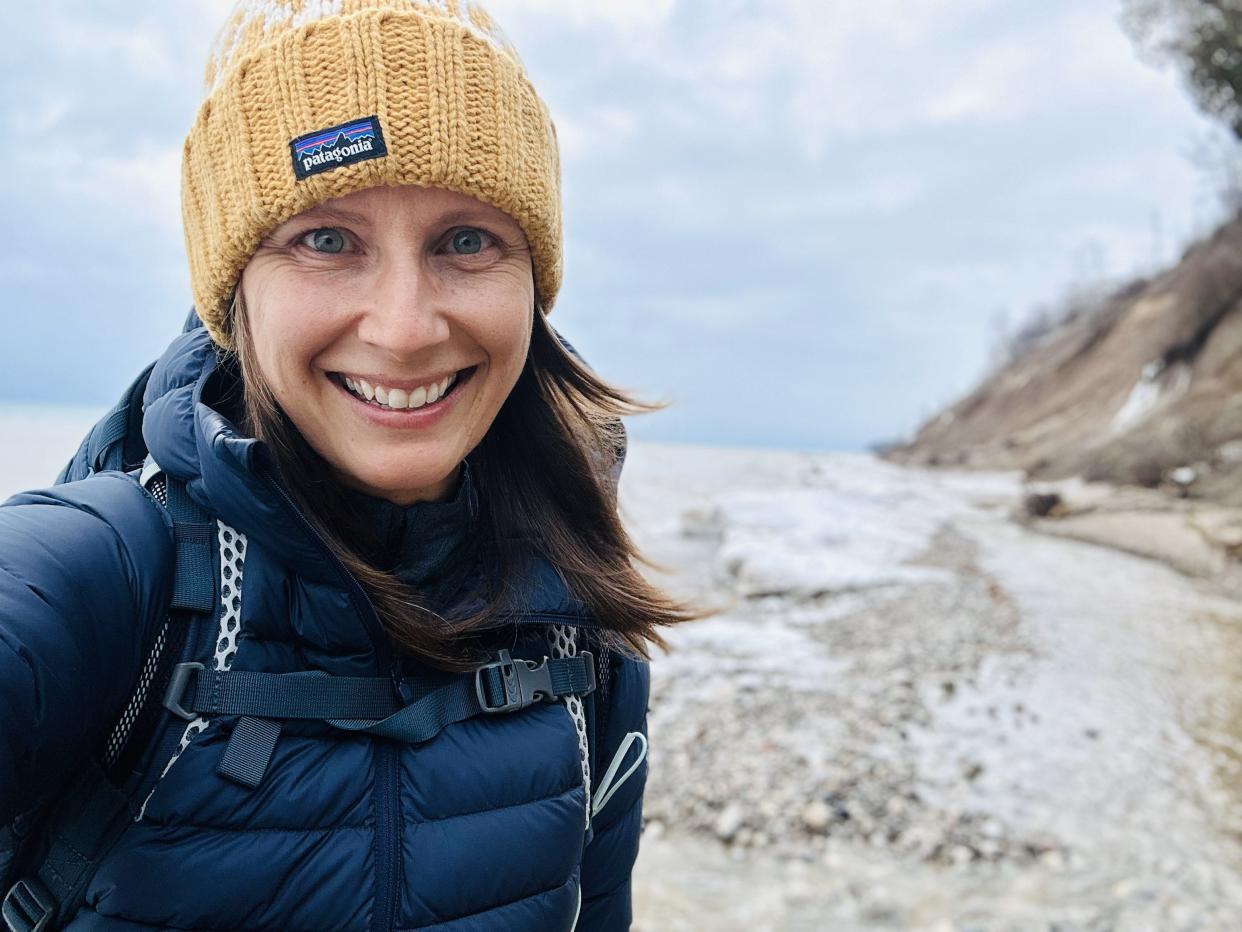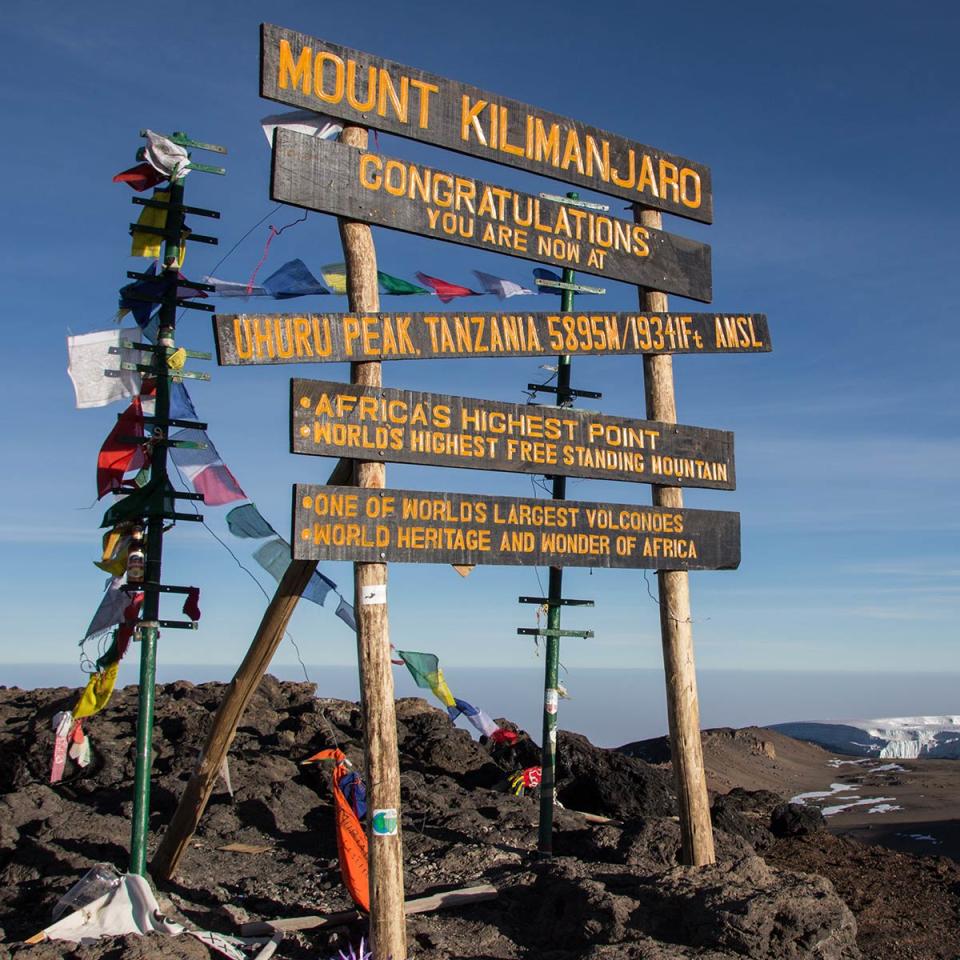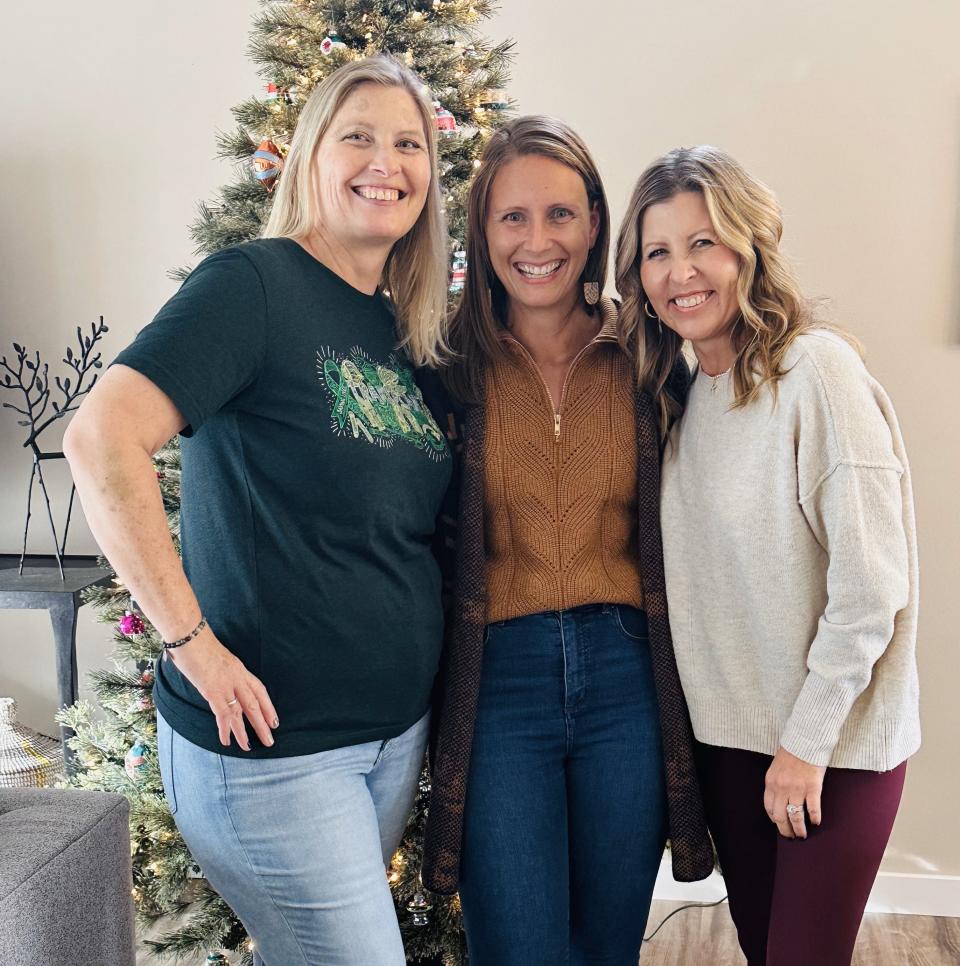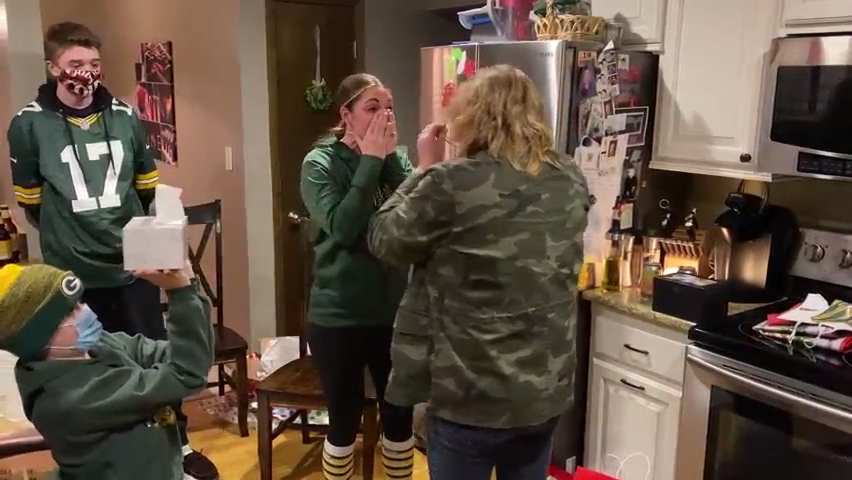A Cedarburg mom who donated a kidney will join other donors in climb of Mount Kilimanjaro

When Cedarburg resident Natasha Irish donated her kidney to a stranger, she said it was transforming.
"It has changed and blessed my life in ways I never imagined," she said.
Irish first signed up with the National Kidney Registry to donate a kidney to a Cedarburg woman. Because she was not an exact match, Irish used the registry to put the Cedarburg woman at the top of the list for a kidney. Irish, however, turned out to be a perfect match for a woman in Eau Claire. Both women had their transplants in April 2023.
"I gave the gift of life to two people," Irish said. "I am now a part of this group of people I never knew before."
Now, as part of a unique group, Irish is set to climb Mount Kilimanjaro, the highest mountain in Africa with an elevation of 19,341 feet above sea level.
This trek is through Kidney Donor Athletes, a nonprofit organization that raises awareness about the importance of kidney donations. The Kilimanjaro climb involves 14 kidney donors — including Irish — and one transplant surgeon. It will begin on March 8 and is slated to end on March 14, World Kidney Day.
"This will be the hardest thing I've ever done in my life," Irish said. "This is my chance to show the world that normal people can become kidney donors and live active and healthy lives after."
Irish is hoping the climb will create awareness about being a donor and dispel any myths about the process.
Emily Polet-Monterosso, KDA group leader and board member, underscored that sentiment.
“Our team believes that fear of negative health outcomes should not be an obstacle for anybody considering giving this life-saving gift," Polet-Monterosso said in a news release.

Inspired by a Facebook post
Irish's kidney donation journey began when she read a Facebook post in May 2022 that tugged at her heartstrings: A husband's plea for a kidney for his wife.
Irish never met Kelly Welsh-Gripentrog or her husband Nick Gripentrog, and they were not even Facebook friends. But they shared mutual friends, they lived in Cedarburg, and it was a genuine plea, explained Irish.
As Irish read about Welsh-Gripentrog's story, she thought, "Sure, I can do that." She completed UW Health Transplant Center’s online questionnaire to get the process started.

"She has a beautiful family and so much of her life resonated with me," Irish said. "She wanted to be there for her kids."
Irish has two children — a 12-year-old and a 10-year-old — while Welsh-Gripentrog has three, ages 22, 17 and 15.
Welsh-Gripentrog had Polycystic Kidney Disease — a genetic disease that leads to kidney failure — since she was 21. However, she had to wait to get a transplant.
Jessica Geraci-Perez, media strategist for UW Health Transplant Center said according to the UW Health donor team, a person's kidney function needs to be at a 20% mark or below before the person can be on the donor list. When Welsh-Gripentrog's kidney function reached that level, she was having her family get tested to see if they would be a good match, Welsh-Gripentrog said.
While Irish's kidney was not a match for Welsh-Gripentrog, Irish's donation enabled Welsh-Gripentrog to get moved to the top of the kidney donor waiting list, and she ended up getting a kidney from another donor who was a stranger.
"She changed my life," Welsh-Gripentrog said about Irish. "None of this would have been possible. I have more energy, and I can be there for my kids and have vacations. Before, I did not want to plan (due to my health)."
Irish changed a second life, too
After going through the necessary testing to find the perfect match through UW Health, Irish's kidney went to a 49-year-old woman in Eau Claire, Shireen Renaghan.
It was Renaghan's second kidney. Her first kidney transplant was in 1998. The kidney transplant lived its life and she needed another one.
Irish said both Renaghan and Welsh-Gripentrog did well after their transplant surgeries and their new kidneys started functioning immediately. And now, because Irish chose to meet and share her identity with both Renaghan and Welsh-Gripentrog, she considers them "her kidney family."
Welsh-Gripentrog is grateful.
"This (kidney donation) was not even on (Irish's) radar," Welsh-Gripentrog said. "She found a whole new meaning of life. She knows she changed mine."

Living kidney donors are needed to save lives
With the donation of a live kidney, there are more options for creating a better match and the longevity of the transplant is better, said April Schulz, clinical transplant coordinator with the living kidney donation program at the UW Health Transplant Center. She said a living donor kidney can function anywhere between 12 and 20 years while a deceased donor kidney can improve quality of life for 8 to 12 years.
Resources like the National Kidney Registry, allow for better matching and a "big pool of donors" and therefore lower the risk of rejection for recipients who need a kidney, said Schulz.
From 2014 to 2019, the number of living donor kidney transplants in the U.S. increased 24% and the number of living donor liver transplants rose by 87.1%, according to data from the Organ Procurement and Transplantation Network.
But there is still a need for more donors. According to the National Kidney Foundation, the average waiting time can be three to five years.
There are more than 90,000 Americans on the kidney transplant waiting list, more than 37 million Americans are living with kidney disease, and about 807,000 Americans are living with kidney failure, according to the American Kidney Fund.
Irish answers a common question: What if your remaining kidney fails?
Irish said a question that many ask regarding her donation is, "What if your kidney fails? What if you need a kidney?"
Irish said that she is not worried about this, and if it were to happen, it would be rare.
"Complication is rare and there is a low likelihood that a previous donor would need their own kidney transplant in the future, however, the United Network for Organ Sharing has a policy in place," said Schulz.
She said that those who donate directly to someone they know get priority on the deceased donor waitlist should they ever need their own kidney transplant.
Plenty of support available
When Irish was preparing for her kidney donation, she acknowledged that there were a lot of "unknowns," especially since this was her first surgery.
What helped her was that she had a mentor — Elizabeth Kay, Milwaukee morning co-host on 99.1 The Mix (WMYX-FM).
Kay donated her kidney which also changed two lives. She donated a kidney, for her mother-in-law, Camille Hamme, who was not a direct match. Her mother-in-law got the voucher which moved her to the top of the list, and Kay's kidney went to someone in Kentucky.
"(Kay) celebrated the victory with me. She was a really strong advocate, and we connected," Irish said.
Schulz said the UW Health Transplant Center assigns living donors to a registered nurse coordinator who stays with them through the process, from start to finish, as well as a two-year follow-up. Schulz also said there are a lot of financial protections and other benefits through an NKR program called Donor Shield and said that the cost of the surgery and its medical costs are covered by the recipient's insurance.

Irish said that she has since connected with other donors through Facebook groups, and with the One Kidney Climb event, she is sure to meet more, she said. With all the connections she made, and the lives she changed and ultimately saved, she loves being a donor.
"I believe God gave me two kidneys when I only need one precisely for this purpose (of donation)," Irish said.
To donate to Irish's One Kidney Climb fundraising page
To donate to Irish's One Kidney Climb fundraising page, visit http://tinyurl.com/OneKidneyClimbNatasha. All proceeds benefit the advocacy and work of KDA.
As of Feb. 13, Irish has raised $4,845 of her $7,500 goal.
For more information on kidney and organ donation
For more information on kidney and organ donations, visit www.kidney.org, donatelifewisconsin.org, the National Kidney Foundation of Wisconsin, www.kidneywi.org, and the UW Health Transplant Center, www.uwhealth.org/living-donor.
Cathy Kozlowicz can be reached at 262-361-9132 or cathy.kozlowicz@jrn.com. Follow her on X at @kozlowicz_cathy
More: This Oconomowoc woman is among the longest-surviving transplant patients of the world
This article originally appeared on Milwaukee Journal Sentinel: Cedarburg woman, a kidney donor, plans to climb Mount Kilimanjaro

